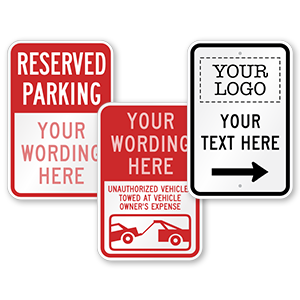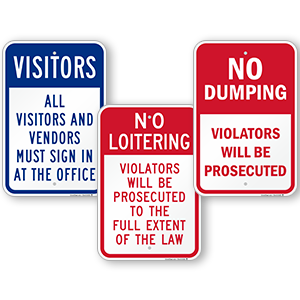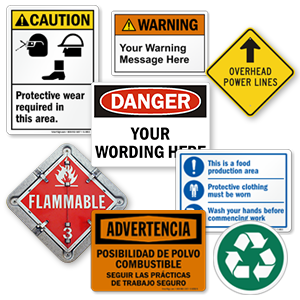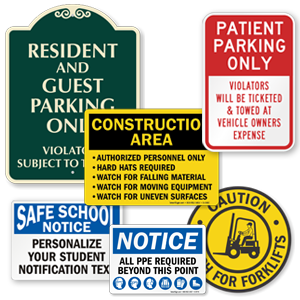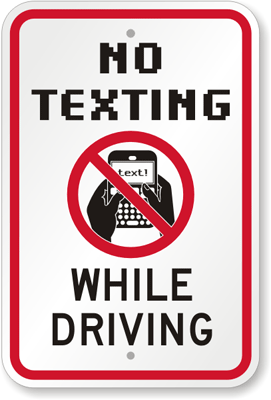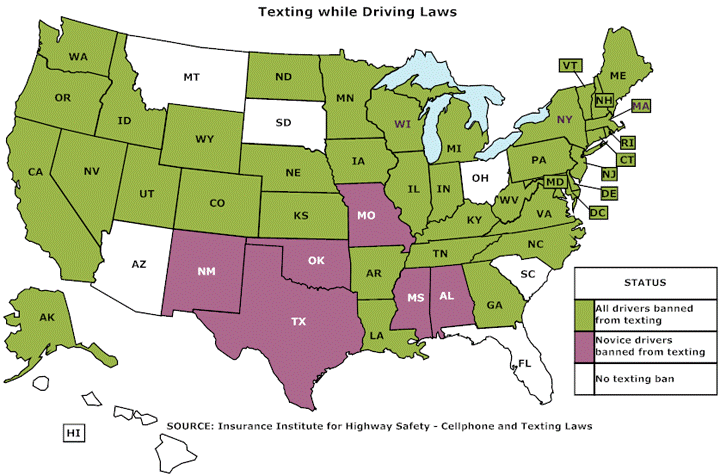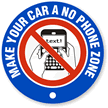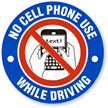Case Sets New Precedent for No Texting While Driving Laws
May 24, 2012 — It’s common knowledge that you shouldn’t text while driving, as one MyParkingSign campaign can attest. Yet, despite the constant reminders and warnings, drivers have continued to ignore signs, warnings, and legislation prohibiting distracted driving. This week, a New Jersey judge has the power to take texting while driving legislation one step further.
(via SmartSign)
On September 21, 2009, Kyle Best swerved out of his lane and hit David and Linda Kubert on their motorcycle, causing them each to lose a leg. He pleaded guilty, admitting to being distracted while using his handheld cellphone. Further investigation of the device showed he had been engaged in a texting conversation with his girlfriend Shannon Colonna, who is now being sued by the Kuberts for aiding in the crash. They claim that knowingly texting a driver makes one liable if the driver causes an accident. In other words, both texter and textee share the blame.
Defense lawyers feel this extension of the law is ridiculous and unreasonable, but given the increase in drivers with cellphones, drivers who text, and distracted driving related accidents, it is clear that drastic action needs to be taken. The Virginia Tech Transportation Institute (VTTI) reports that sending a text message while behind the wheel makes a driver 23.2 times more likely to get in an accident when compared to drivers who are paying complete attention to the road. A driver who takes their eyes off the wheel for only five seconds can travel the length of a football field, a dangerous 100-yd blind spot that is one of the most terrifying dangers of the road.
Sure, it seems extreme to implicate someone who wasn’t in the vehicle, but two leg amputations for a couple is pretty extreme as well. In her deposition, Colonna told lawyers she wasn’t sure whether Best was driving but she could have known. Given the circumstances of their conversation, after Best was out of work and headed home, the Kupert’s lawyer says she must have known and was electronically present. The verdict will be made on May 25, but the case has added to a growing conversation about how to effectively combat the driving game of Russian roulette.
As of April, Thirty-seven states banned texting while driving, this month Alabama amended its bill and became the 38th state to prohibit all texting while operating a vehicle.
Thirty eight states, including New Jersey, have banned all texting while operating a vehicle, but accidents and fatalities attributed to distracted driving continue to climb. VTTI found that some of the highest offenders are those who would feel uncomfortable as a passenger if the driver were using their cellphone in any capacity. This hypocritical stance is precisely what makes texting while driving so difficult to control. Drivers overestimate their ability. To extend responsibility of accidents to both parties involved in texting would make people texting drivers much more reluctant to send that text.
Governments and law enforcement officials must take a firm and strict stance on dangerous driving. Texting will always increase the risk of casualties and can easily be avoid. Drivers and non-drivers alike need to take responsibility for their actions and do their part to uphold the law. Responding to texts from a driver increase the chance of an accident and it is better to wait five minutes to send that text and save a life.
– K. Howitt



